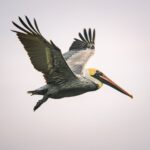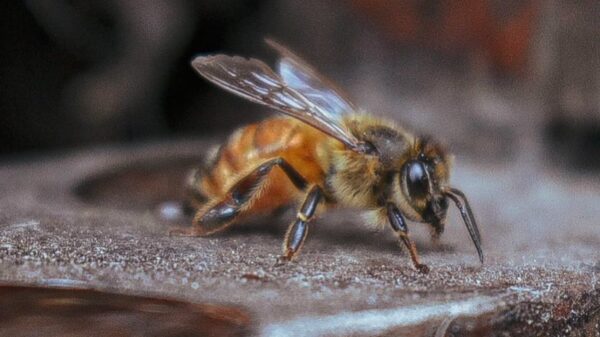Welcome to the incredible world of marine life! From vibrant coral reefs teeming with colorful fish, to majestic whales breaching the surface, there is no shortage of wonders waiting to be discovered beneath the waves. As we dive deeper into this fascinating realm, we’ll uncover some of the most intriguing creatures and ecosystems that call our oceans home. So grab your snorkel gear and get ready for an adventure unlike any other – it’s time to explore the captivating mysteries of the ocean!
Introduction to the Fascinating World of Marine Life
Welcome to the fascinating world of marine life! Here we will explore the many wonders of the ocean, from the smallest creatures to the largest mammals. We will learn about their habitats, diets, and behaviors. We will also discover how humans are impacting these animals and their environment. Get ready to dive into the amazing world of marine life!
Types of Marine Wildlife
There are a vast array of different marine wildlife species that can be found in the world’s oceans. Some of the more commonly known animals include dolphins, whales, sharks, and turtles. However, there are many other lesser known creatures that call the ocean home.
Some of the different types of marine wildlife include:
Fish: There are over 32,000 different species of fish that live in the ocean. They come in a wide variety of shapes, sizes, and colors. Fish are adapted to living in both saltwater and freshwater environments.
Crustaceans: Crustaceans are a type of invertebrate that includes crabs, lobsters, and shrimp. There are over 50,000 different species of crustaceans. They typically have a hard exoskeleton and range in size from microscopic to over two feet long.
Mollusks: Mollusks are a type of invertebrate that includes squid, octopuses, and clams. There are over 85,000 different species of mollusks. They can vary greatly in size and shape depending on the species. Some mollusks have shells while others do not.
Echinoderms: Echinoderms are a type of invertebrate that includes starfish and sea urchins. There are over 7,000 different species of echinoderms. They typically have bodies that are spiny or bumpy and range
Understanding Aquatic Ecosystems
Aquatic ecosystems are complex systems that include both biotic (living) and abiotic (non-living) components. The study of aquatic ecosystems helps us to understand the interactions between these components and how they affect the overall health of the system.
One of the most important aspects of an aquatic ecosystem is the water itself. Water is essential for all life on Earth, and it plays a vital role in the functioning of aquatic ecosystems. It is important to understand the properties of water and how it affects the organisms that live in these environments.
Another key component of aquatic ecosystems is the substrate, which is the material that makes up the bottom of the system. This can include things like sand, rocks, or mud. The substrate provides a home for many different kinds of organisms and can also affect the way water moves through the system.
The plants and animals that live in an aquatic ecosystem are also critical components. These organisms interact with each other and with their environment in a variety of ways. For example, some animals eat plants, while others may help to aerate the water or provide shelter for other creatures.
Understanding how all of these different elements work together is essential for managing and protecting aquatic ecosystems. By studying these systems, we can learn about the importance of biodiversity, water quality, and other factors that impact the health of our planet’s freshwater resources
Importance of Conservation for Marine Life
Marine life is essential to the health of our planet. The ocean produces more than half of the world’s oxygen and helps regulate the global climate. Marine life is also a major source of food and livelihoods for people around the world.
However, marine life is under threat from human activities. Overfishing, pollution, and climate change are all putting pressure on ocean ecosystems. This is why conservation is so important.
Conservation can take many forms, from protecting specific species or habitats to managing fisheries in a sustainable way. Whatever the approach, conservation is vital to ensuring that marine life can continue to thrive into the future.
Marine Life Adaptations and Behavior
The ocean is home to a vast and diverse array of marine life, from the smallest microorganisms to the largest whales. Each species has adapted to the unique conditions of the marine environment in order to survive.
Some adaptations are physical, such as the streamlined body shapes of fish that allow them to swim more efficiently through water. Others are behavioral, such as the way some animals migrate long distances to find food or mates.
No matter what their adaptations may be, all marine creatures play an important role in the complex ecosystem of the ocean.
Unique Underwater Attractions in Different Parts of the World
There are many unique underwater attractions around the world that are worth exploring. Here are some of the most interesting ones:
1) The Blue Hole in Belize is a large underwater sinkhole that is over 300 meters deep. It is one of the most popular diving spots in the world and is home to many different species of fish and other marine life.
2) The Great Barrier Reef in Australia is the largest coral reef system in the world. It is home to a huge diversity of marine life and offers stunning scenery both above and below the water.
3) The Red Sea in Egypt is renowned for its clear waters and rich marine life. There are many different dive sites to explore, including wrecks, reefs and caves.
4) The Galapagos Islands in Ecuador are a haven for wildlife both on land and underwater. The islands offer some of the best scuba diving in the world, with an abundance of sea turtles, sharks, rays and other marine creatures to be seen.
5) The Maldives is an archipelago made up of over 1,000 small islands in the Indian Ocean. It is renowned for its beautiful beaches, crystal clear waters and diverse marine life.
Research Opportunities to Learn More About Marine Life
The world’s oceans are home to an incredible diversity of marine life, from the tiniest plankton to the largest whales. Marine biologists study this amazing variety of life in the ocean, and there are many research opportunities available for those interested in learning more about marine life.
One way to learn more about marine life is to participate in citizen science programs. These programs allow members of the public to help collect data that scientists can use in their research. One popular citizen science program is the Coastal Observation and Seabird Survey Team (COASST), which trains volunteers to identify and count birds along the coast of the Pacific Northwest. This data helps scientists track the health of bird populations and understand how they are affected by changes in the environment.
Another way to get involved in marine life research is to work with a local university or museum on a research project. Because many institutions offer volunteer opportunities or paid internships for students interested in gaining experience in fieldwork or laboratory research. This is a great way to learn more about specific aspects of marine biology and get hands-on experience working with different types of organisms.
Lastly, there are many ways to learn about marine life from home through online resources and distance learning programs, because there are numerous websites dedicated to sharing information about ocean life, and many universities offer online courses that cover various topics in marine biology and by taking advantage of these resources, you can learn more about the fascinating world of marine life without even leaving your house!
Conclusion
From the majestic whales to the booming coral reefs, exploring marine life is an adventure filled with discovery. Whether you’re a seasoned diver or new to this world, there are plenty of opportunities to uncover and appreciate the wonders of ocean wildlife. Because marine life offers us insight into our planet’s history and its future; it provides us with valuable resources for food, clothing, and recreation; and most importantly it gives us a connection to something larger than ourselves and by understanding these creatures in their environment we can work towards preserving them for generations to come.










